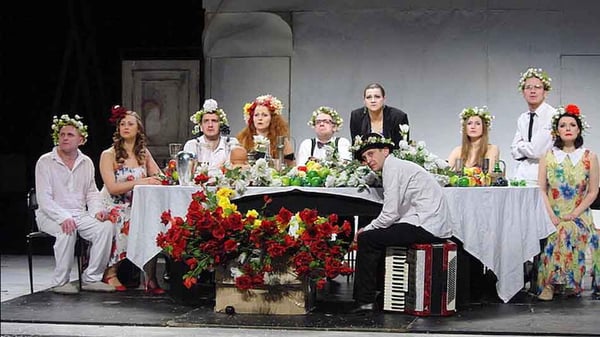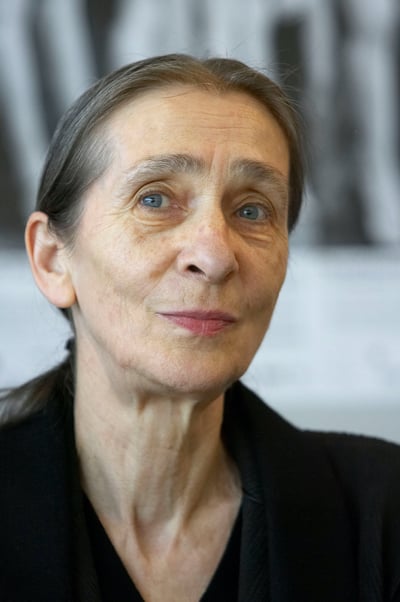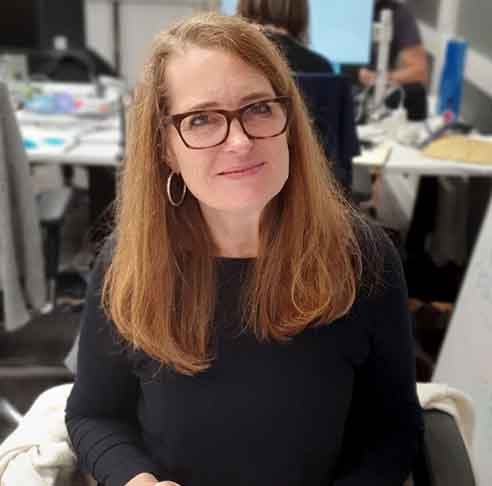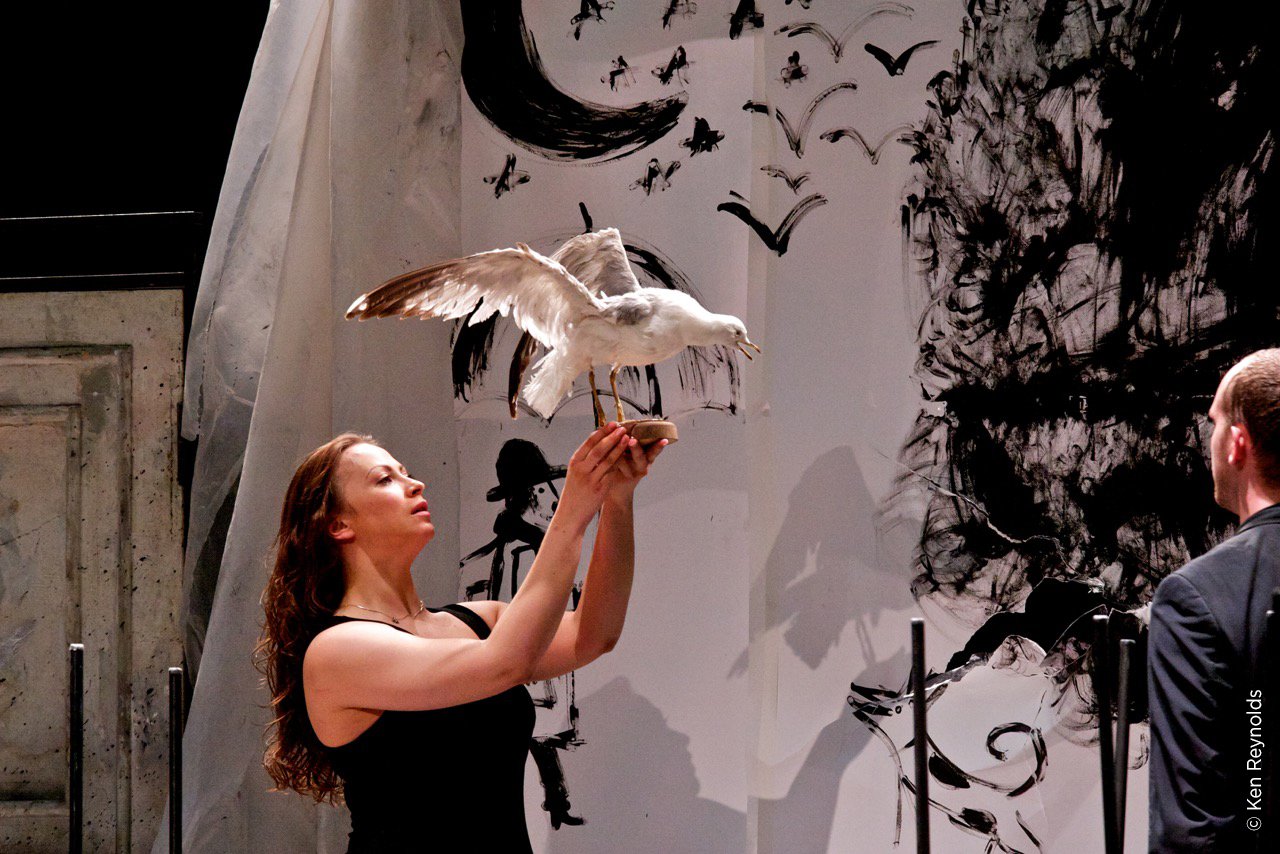6 March 2023
A Night at the Theatre: Looking back at life-changing performances
Talia Rodgers
Head of Higher Education, Digital Theatre+
We asked a handful of Digital Theatre+ friends and associates with long theatre-going careers to reflect on a night at the theatre which changed them.
From a post-dramatic Chekhov to two nights of Pina Bausch’s Kontakhtof at Sadlers Wells separated by 40 years, via a powerful school Shakespeare, some traumatically brilliant Tadeusz Kantor and Peter Brook’s vivid Kaspar, these impactful performances set each of these renowned specialists on their singular course in and through the theatre.
All of our contributors write directly or indirectly of the power of liveness, of community, and of the kind of theatre which tackles life’s big questions head-on.
Talia Rodgers
Head of Higher Education, Digital Theatre+
David Chambers
Yale University: Professor Adjunct, Theatre and Performance Studies
Harvard University: Associate, Theatre, Dance, and Media
“I was tempted to opt for Peter Sellars’ landmark Don Giovanni in 1987, which was set in a mixed-race urban ghetto – if opera could be like this, I needed to do it! Not long afterwards I too began directing opera.
However, the life-changing night in the theatre I want to describe is in fact Yury Butusov’s The Seagull at Moscow’s Satirikon Theatre in 2016, which can be found on DT+. This antic and often chaotic production messes fast and loose with Chekhov. But unpredictably, Butusov exposes the playwright’s poetic heart deeper than any “straight” production could possibly do in our world today. Don’t be deceived when you watch it, post-dramatic Butusov and the Satirikon company have met Anton’s 1898 play with respect, humour, sorrow, sexuality, and existential pain – all the things that make life worth living, and Chekhov worth reading.
Now Chekhov’s plays and Butusov-style études occupy a good part of my artistic and teaching life. (In the video, the guy in blue jeans who rushes onstage to tear down Nina’s stage and later foments other theatrical escapades is Butusov.)”
 The Seagull © Stage Russia
The Seagull © Stage Russia
Maria Delgado
Vice Principal (Research and Knowledge Exchange), Royal Central School of Speech and Drama, London
“1976. The sleepy UK town of Huntingdon. I’m about to start at St. Peter’s comprehensive school and there’s a brief mention of a new production of Shakespeare’s Julius Caesar produced by staff and students. I start nagging my parents to go. I had never been to the theatre, had no idea who or what Shakespeare was but kept asking my dad about Julius Caesar. What did he do? Was he important? I felt an urgent need which I couldn’t rationalise beyond curiosity to find out more.
My father reluctantly agreed to go with me, and while there is much I have forgotten about the production key things remain: the excitement of a stage world that demonstrates the intrigue and machinations of what happens behind the closed doors of political structures; the power of the fourth wall that converted a timeworn school hall into a Roman senate-house or a battlefield in Italy with a few drapes, tables and chairs; the buzz of being part of an audience as they/we responded to the action evolving around us; the thrill of the live – Lorca referred to it as ‘duende’, the sense of something intangible but powerful that heightens emotion.
The acting may have been what I would now regard as ropey and the set makeshift but none of this mattered because the immersive effect of being in that space was so urgent and unforgettable. Memory is fallible and problematic but even if the details of this production, seen over forty-six years ago, have faded, what remains is the sense of why theatre matters. The sense of being, however temporarily, part of a community forged in that moment, and the unknown worlds that open as you enter the performance space, not quite knowing what is coming your way.”
Michael Dobson
Director, Shakespeare Institute, Stratford-Upon-Avon
“I grew up loving theatre, but in east Dorset only certain kinds of theatre were available: pantomime, farces, murder thrillers, and occasional touring productions of classics. By the time I was 20 I was variegating these with trips to the National Theatre and the Royal Shakespeare Company to see further safe, state-approved classics. And during my first year at university I had begun to experience some of the atrocities that can happen when students try to be avant-garde. But nothing had prepared me for the show I saw on what I think was my first evening at my first Edinburgh Festival, in the summer of 1980.
The venue was a large proscenium arch auditorium, entirely familiar to anyone raised on The Pavilion Theatre in Bournemouth, but the rules were all different. There was little dialogue, and it was in Polish. The script was clearly being changed as the show happened by the director, who was on stage shouting instructions to his acrobatic ensemble company as they performed. And what they were performing – their faces now pale-grey with caked mud, now washed, now caked again – was raw historical trauma. Again and again the soldiers came, and again and again the villagers died, and soldiers died: and then the director remembered again, stricken but unable not to look, and the soldiers came again.
He was Tadeusz Kantor, and the show, by his company Cricot 2, was called Wielopole Wielopole. I had never seen anything as compelling in a theatre before, and in decades of searching since I have only very occasionally found it again.”
Anna Furse
Professor of Theatre and Performance, Goldsmiths and Artistic Director: Athletes of the Heart
“It wasn’t a night at the theatre, but a Sunday afternoon. In a warehouse. In Paris. 1971. I was living there having quit my Royal Ballet training, looking for theatre experience before studying for a Drama degree. I felt totally ignorant – and was. I was invited to Peter Brook’s CIRT to meet him. Who was this? We watched two versions of Peter Handke’s Kaspar, directed by Brook. One on a ‘stage’, and one an immersive event.
His actors were in the depths of experiments, preparing the African tour which was to become famous, and included Yoshi Oida, Miriam Goldsmidt and Natasha Parry. Peter met me in the break and asked me to translate some text. I was hired, and spent the most formative 9 months of my life as(unpaid) translator/interpreter and general assistant. I had fallen in love with (t)his theatre. A highly disciplined ex-ballet dancer, I thought the rigour – and even stern directorial criticism – normal.
Kaspar had a huge and lasting impact. Burned in my mind still: actors bursting out of wardrobes high on the concrete mobilier walls; Kaspar, mouth full of rags, trying to utter the words “I want to be what someone else once was”. Decades later, I directed my own Kaspar in Ljubljana, during the Balkan Civil War. My Kaspar was a woman, being systematically re-educated in an ethnic cleansing rape camp.
From that memorable day and since, I understood that theatre could be made from so little, materially, yet how abundantly rich is the actor’s creativity – theatre’s lifeblood; that a text is a supple thing; and when bringing it to life there might be no limits. This is what those two Kaspar(s) showed me, and moved me to a life of making.”
Alan Read
Director, Performance Foundation, King's College London
“I was last at the theatre a few days ago, on Thursday, 3 February 2022. I knew what to expect as I had been there before on another Thursday – 16 June 1982. Kontakthof (for that is what was repeating across the Sadlers Wells stage) was being danced then and now by Tanztheater Wuppertal, choreographed by Pina Bausch.
 Pina Bausch © Michael Kneffel-Alamy
Pina Bausch © Michael Kneffel-Alamy
I had first heard the name Pina Bausch the year before, in a tape recording I made for Dartington’s Theatre Papers with the brilliant founding actor and director Hans Man in ‘t Veld for Het Werkteater, I had no idea who he was referring to on the tape when speaking about a recent influence on the work of their company, when he had said, ‘Pina [something or other, inaudible]’. He kindly, and without a hint of condescension repeats, ‘Bausch’, and suggests I see the work to ‘change my life’. And on that autumn night I suppose it did. What sort of change? Does theatre do any such thing? I have written against that grain for years, contesting the presumption that theatre might be an especially social act.
In 1982 the first act of Kontakthof still running to two full hours was brought down (and I might have been hallucinating, so heady was the atmosphere) with a few members of the audience approaching the stage and throwing their shoes at the dancers, who were retreating elegantly from a combination of incomprehension and vilification. For the rest of us there was the look of love, a sort of still adulation I had never witnessed in theatre. There was little ambivalence in that room and it felt good, as though the 1956 revolution we had been long promised had just come of age.
Forty years has made not a jot of difference to that famous set – everything in that respect is as it was and still is, in a suspended moment in German history. The stage is the same, the dancers wholly ‘different’. I am surrounded by a new generation of students for whom this is their first time. I am happy to be in their company, though half of them take their leave at the intermission which cheers me more. They appear not to be subject to the ‘Theatre Etiquette’ of obedience that bedevils so much of what we do. And one of them is deeply touched, moved and upset by this ferocious performance to the point of no return.
If you are not free to leave what possible value could you feel from staying? We are hardly working, we are paying. What a night, and another. Never to be forgotten. Repeated.
I don’t only talk and write about theatres four decades apart, but such temporalities do interest me. Are we in it for the long run? What might such stamina mean, what privileges would it take to spend a life looking forward in dark spaces at illuminated stages?”
Related blogs
Katie Mitchell on making sustainable theatre
Katie Mitchell, revered UK theatre director – whose current show Little Scratch opened at Hampstead...
Read moreThe life and work of Augusto Boal: a rare glimpse into the archive
Augusto Boal created what NYU’s Richard Schechner described as ‘the theatre that Brecht only...
Read moreMarc Rees' Now The Hero and the impact of site-specific theatre
When teaching or studying site-specific theatre, you might assume that the most important part of...
Read moreGet the latest teaching tips straight to your inbox
Explore free lesson ideas and inspiration, education news, teaching trends and much more by signing up to regular blog updates!





